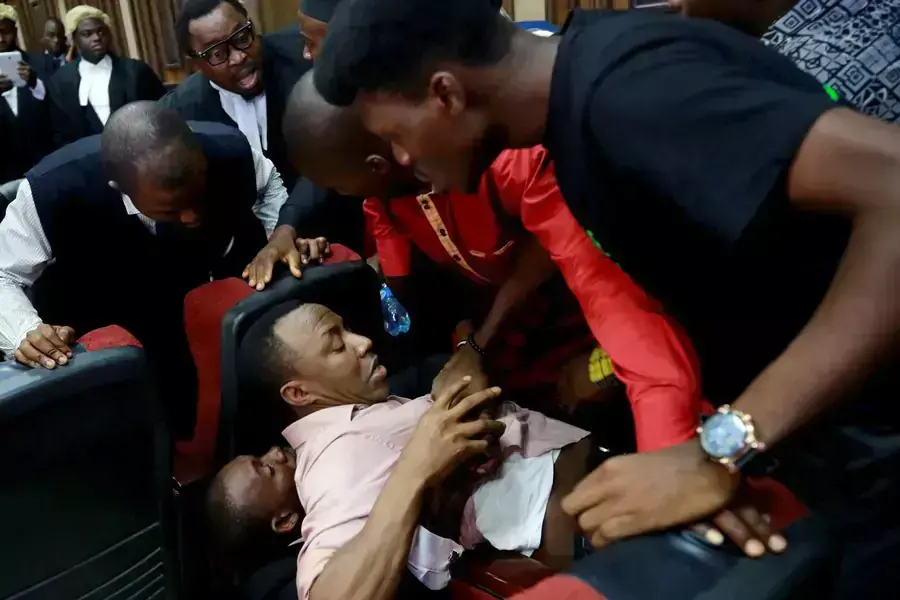Nigerian Human Rights Activist Arrested—Again

Nolan Quinn contributed to this post.
Omoyele Sowore, human rights activist and former presidential candidate of the African Action Congress, was arrested New Year’s Eve following a peaceful protest in the capital, Abuja. According to Nigerian media, he has been denied bail and arraigned at the Magistrate Court in Abuja; he and other activists are now being held in Kuje prison. Initially he and a small group of fellow protestors were taken to Abattoir police station, formerly a facility of the Special Anti-Robbery Squad (SARS), the police unit whose brutality ignited the October anti-SARS protests in Lagos that led to the notorious police murder of protestors at the Lekki Toll Gate. (Abattoir is the formal name of the police station, which is situated in a defunct abattoir.) SARS has officially been disbanded, but critics fear that it has merely been reconstituted with a new name.
More on:
Though he has been a thorn in the side of the Buhari administration, why did the police arrest Sowore in the aftermath of a small, peaceful protest? He is an internationally known human rights activist and founder of Sahara Reporters, a well-regarded news site based in New York. He is a permanent resident of the United States; his family lives in New Jersey. His 2019 detention of 144 days without charge attracted the protest of Sen. Bob Menendez (D-NJ).
Sowore is a fierce critic of Nigeria's political economy in general and President Muhammadu Buhari in particular. He has called for a “revolution” and organized peaceful protests across the nation. Some critics see his use of “revolution” as evidence that he is trying to overthrow the government extralegally, though his protests have been peaceful. He is at present charged with “treason” and had been out on bail following his previous arrest; one of the conditions was that he could not leave Abuja. Just before New Year's he was calling for nationwide “crossover protests” against bad government, the Lekki massacre, and other human rights grievances. In Nigeria and elsewhere in Africa, opposition to a government may be construed as treason. Because the protests were to be nationwide, the authorities (or some of them) may have seen Sowore as violating the provision of his parole that restricts him to Abuja even though he had not left the city. For them, that could be a pretext for jailing him. From media accounts, the arrests were heavy-handed: multiple police vans appeared and Sowore is reported to have been beaten.
Many of those who benefit from Nigeria's political economy, not least the police, detest Sowore. Instigation for his arrest could have a variety of sources, not necessarily including the presidency. The episode, if not quickly resolved, could further damage Nigeria's international reputation—particularly among the diaspora living in the United States. The incoming Biden administration has signaled that it will be deeply concerned about human rights issues. The arrest of Sowore and the denial of bail is a poor representation of Nigeria to the incoming administration.
More on:
 Online Store
Online Store
